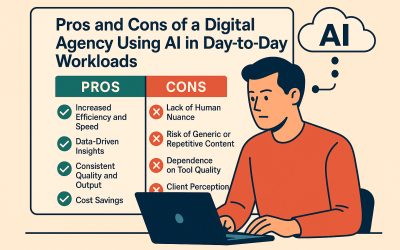Advantages of Using AI in a Digital Agency
The Pros and Cons of a Digital Agency Using AI in Day-to-Day Workloads Artificial Intelligence (AI) has gone from a futuristic buzzword to a daily reality for many businesses—and digital agencies are no exception. From automating routine tasks to creating content in…


